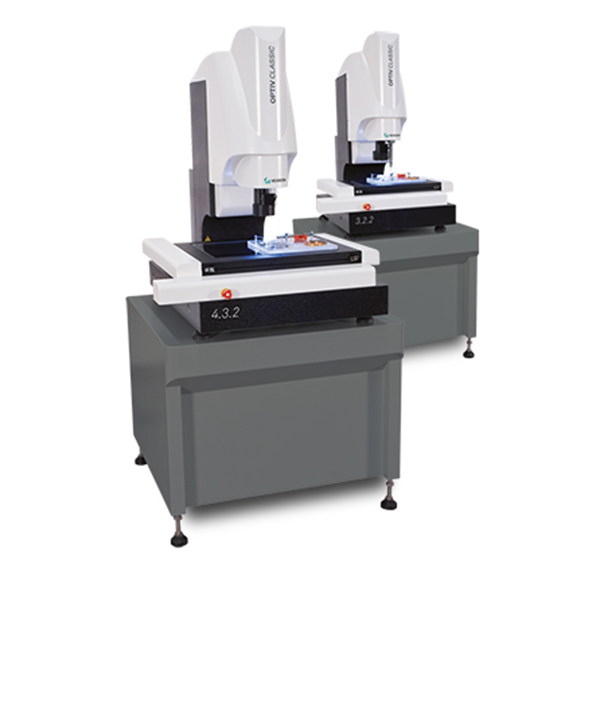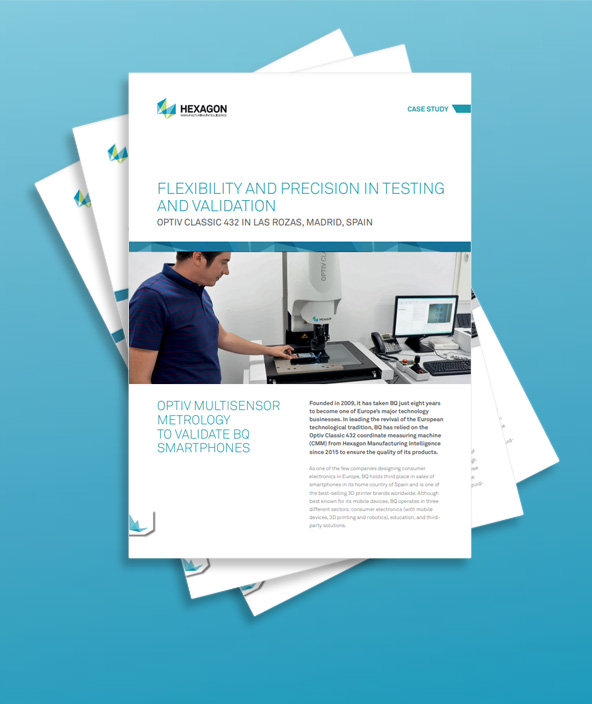Flexibility and precision in testing and validation
BQ - Spain
Contact us
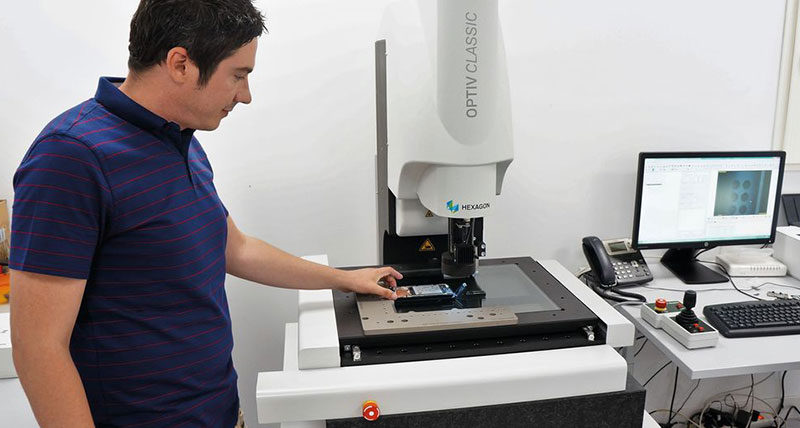
Founded in 2009, it has taken BQ just eight years to become one of Europe’s major technology businesses. In leading the revival of the European technological tradition, BQ has relied on the Optiv Classic 432 coordinate measuring machine (CMM) from Hexagon Manufacturing Intelligence since 2015 to ensure the quality of its products.
As one of the few companies designing consumer electronics in Europe, BQ holds third place in sales of smartphones in its home country of Spain and is one of the best-selling 3D printer brands worldwide. Although best known for its mobile devices, BQ operates in three different sectors: consumer electronics (with mobile devices, 3D printing and robotics), education, and third-party solutions.
As Javier Macías, Mechanical Engineering and Industrial Designer Manager at BQ explains, “Our aim at BQ is to help people understand technology, encourage them to use it and inspire them to create it. We are working to make technology an instrument that will improve the world and the lives of its consumers”. BQ’s product development team is based in Las Rozas, Madrid, and is made up of hundreds of engineers divided into Mechanical Engineering, Industrial Design, Hardware and Software departments. Mobile devices (smartphones, tablets and e-readers) are designed in Spain and produced in China, while 3D printers and robotics devices are both wholly designed and manufactured in Spain.
This design and development division handles endurance testing and validation of all of the company’s products. Their demanding Accelerated Life Testing process subjects BQ products to exhausting tests to detect possible points for improvement and to advance the innovations and developments that will be incorporated into new products.
Since 2015, BQ has relied on the Optiv Classic 432 CMM from Hexagon Manufacturing Intelligence for validation and endurance testing of its smartphones, tablets, e-readers and 3D printers. Systems that combine optical and probe metrology offer one thing above all: flexibility. Depending on a part’s 3D geometry, material, reflectivity properties and required precision, the sensor technology and metrology strategies required may vary. The optical and multisensor range of CMMs are able to meet the needs of a wide range of applications with differing demands because of the level of flexibility that is unique to combining optical and probing functionalities.
We’re very satisfied with Hexagon, and their having an efficient local support team is a key factor in this.
“Right from the start, it was clear to us that we needed a versatile system that combined vision sensors and touch-trigger probes,” says Mr Macías. “We carried out a market study, and felt very confident in Hexagon, especially because we knew that other large companies in this sector were using their equipment. So we decided to do the same. They were most attentive and efficient in the pre-purchase period, and resolved all our doubts.”
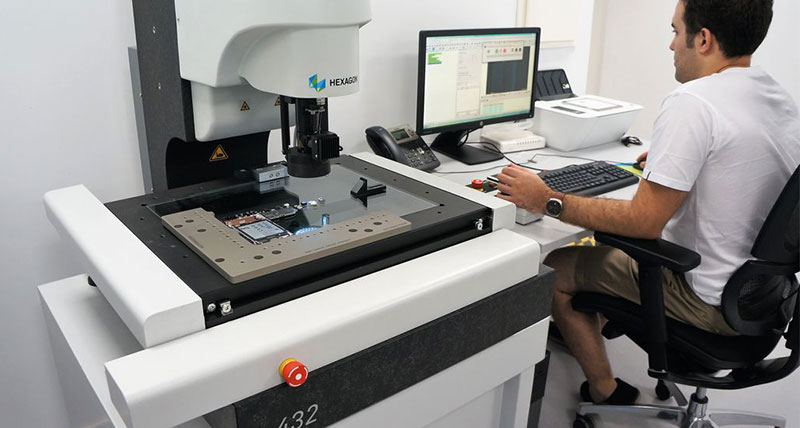 The Optiv Classic 432 is used during the design phase of their products and Mr Macías believes this metrology system is of great help during the validation process before products are launched. “In our case, we use it for failure mode analysis during product validation, to validate parts, to analyse production processes (plastic injection moulding, CNC machining, etc.) and to verify new technologies, such as a new origin calibration system for 3D printing”.
The Optiv Classic 432 is used during the design phase of their products and Mr Macías believes this metrology system is of great help during the validation process before products are launched. “In our case, we use it for failure mode analysis during product validation, to validate parts, to analyse production processes (plastic injection moulding, CNC machining, etc.) and to verify new technologies, such as a new origin calibration system for 3D printing”.
BQ mobile devices are composed of hundreds of parts and components that are assembled inside a device just a few millimetres thick, all reduced in size while retaining maximum performance. This is the only way to deliver successful products in a sector as technologically competitive as that of mobile devices, where BQ are up against large multinational companies.We’re very satisfied with Hexagon, and their having an efficient local support team is a key factor in this.”Javier MacíasMechanical Engineering and Industrial Designer Manager at BQ.
Every component of every mobile device requires strict dimensional control, since apart from the dimensions of the components themselves, the separations between them must also be maintained. This calls for very narrow tolerances for endurance testing and validation: from 0.1 millimetres for plastic parts down to 0.05 millimetres for CNC-machined steel or aluminium components.
“Our main aim is to offer quality products,” explains Mr Macías. “When a product has been validated, we must be sure it works perfectly and is ready to be launched onto the market. That’s why so many tolerances are involved, since our products are made up of thousands of parts. If a fault is detected, we have to identify its origin and find a solution, for example, deepening a housing or allowing more clearance between a shaft and a bearing hole.”
“Once we’ve finished the analysis, we find corrective measures that allow us to make decisions and introduce modifications to solve the problem, such as changes in the manufacturing process, the materials or the design. There is a team of engineers in charge of this process who analyse what’s happening in the device and devise a solution, to guarantee the quality of BQ products.”
Before BQ acquired the Optiv Classic 432, these extremely important tasks were carried out using a variety of machines located in different departments. Introducing this multisensor and optical system has allowed many of the analysis and revision tasks derived from BQ’s endurance testing to be condensed into a single process point. This has allowed them to achieve a decisive reduction in the time scale of the validation procedures for the parts and materials that go into each model of smartphone manufactured by BQ.
“In our sector, time to market is one of the keys to success, and just one week’s delay in a product launch may be decisive,” continues Mr Macías. “Before we had this equipment, when we came to analyse samples following the Accelerated Life Testing process, we depended on many types of equipment: microscopes to examine defects, flatness gauges, a profile projector for certain measurements, other gauges, etc. By combining these measurements in one unit, Hexagon’s Optiv Classic 432, we can be more dynamic and precise.”
In terms of quality, thanks to the introduction of the Optiv Classic 432 to the product validation procedures at BQ, the failure rate in each new range has been progressively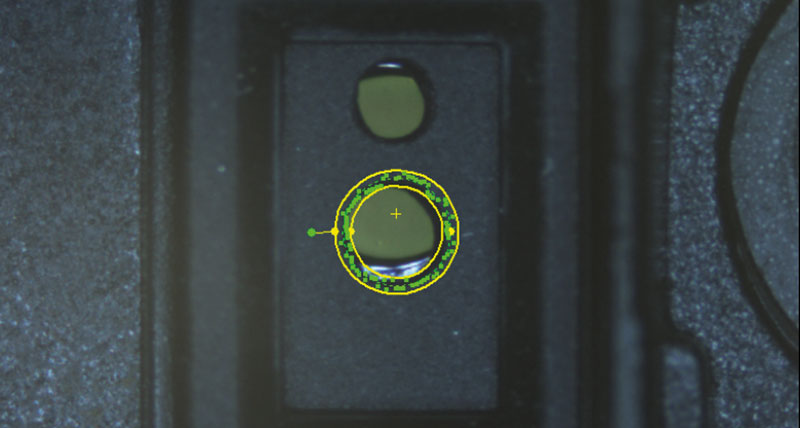 reduced. As Mr Macías puts it, this is an “essential factor” in the world of mobile devices.
reduced. As Mr Macías puts it, this is an “essential factor” in the world of mobile devices.
“If you have a good product, but it is not reliable, you lose the market. At BQ, we’re extremely aware of this. We’ve completely redesigned the methodologies of the design process on the basis of failure mode analysis and product validation that is built on Accelerated Life Testing and analysis of the failures detected during validation, and Hexagon’s metrology equipment has played a big role in this.”
Before, we depended on many different types of equipment ... Combining everything in the Optiv Classic 432, we can be more dynamic and precise.

